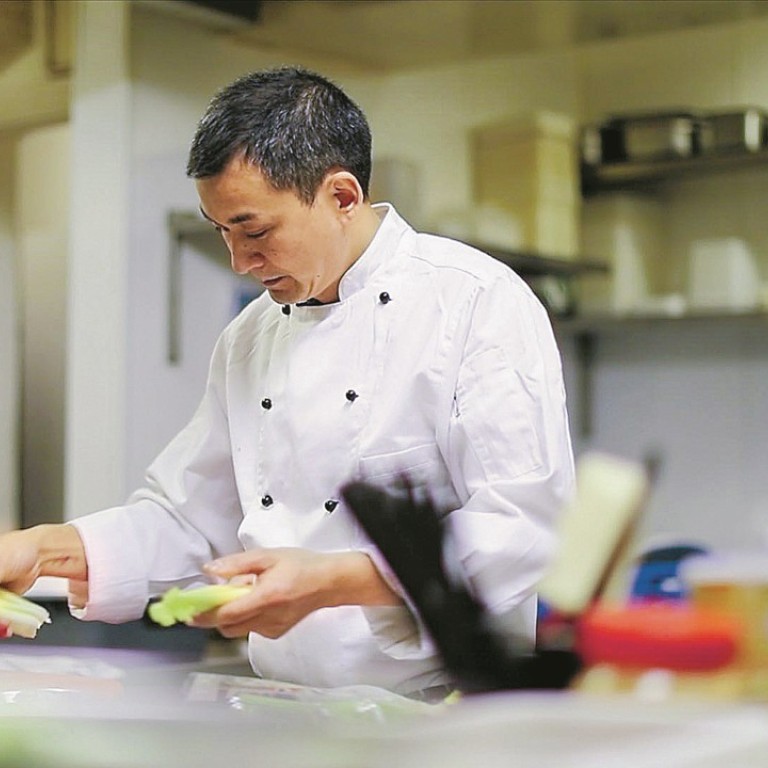
Deng Xiaoping chef’s grandson on his London Sichuan restaurant and mission to promote the Chinese cuisine
Some of the late Chinese leader’s favourite dishes are on the menu at Zhang Xiao Zhong’s Shoreditch restaurant The Sichuan
If Deng Xiaoping, late leader of the People’s Republic of China, were to travel through time and appear in Shoreditch, London in 2018, he might feel quite at home. Executive chef Zhang Xiao Zhong of The Sichuan, on City Road, is the grandson of Deng’s personal chef. He cooks some of the former leader’s favourite dishes in his restaurant.
“My grandfather was a famous Sichuan chef,” says Zhang. “He was invited to become a personal cook for Mr Deng [who was also a Sichuan native]. I can remember him talking about a cold chicken dish in sauce which Mr Deng particularly enjoyed. We have it on the menu here.”
Everyday elegance: the Michelin-starred chefs at top London hotels
For generations, the Zhang family home was the Chinese city of Chengdu, birthplace of Sichuan province’s cuisine. Zhang comes from a culinary family and became interested in cooking at a very young age. After learning from his uncle and grandfather, who were both professional chefs, he undertook formal training in Chengdu. Zhang went on to work for some prestigious establishments in Beijing, Shanghai and Guangdong, before moving to London in 2005. He started his own restaurant business and opened The Sichuan in late 2015.
Zhang is small and slight, with a reserved, polite manner. Although he has been in London for some years, he prefers to speak Chinese and apologises for his English-language skills. Despite his impressive pedigree and successful career, Zhang is strikingly humble – driven by a desire to share his understanding of Chinese cookery.
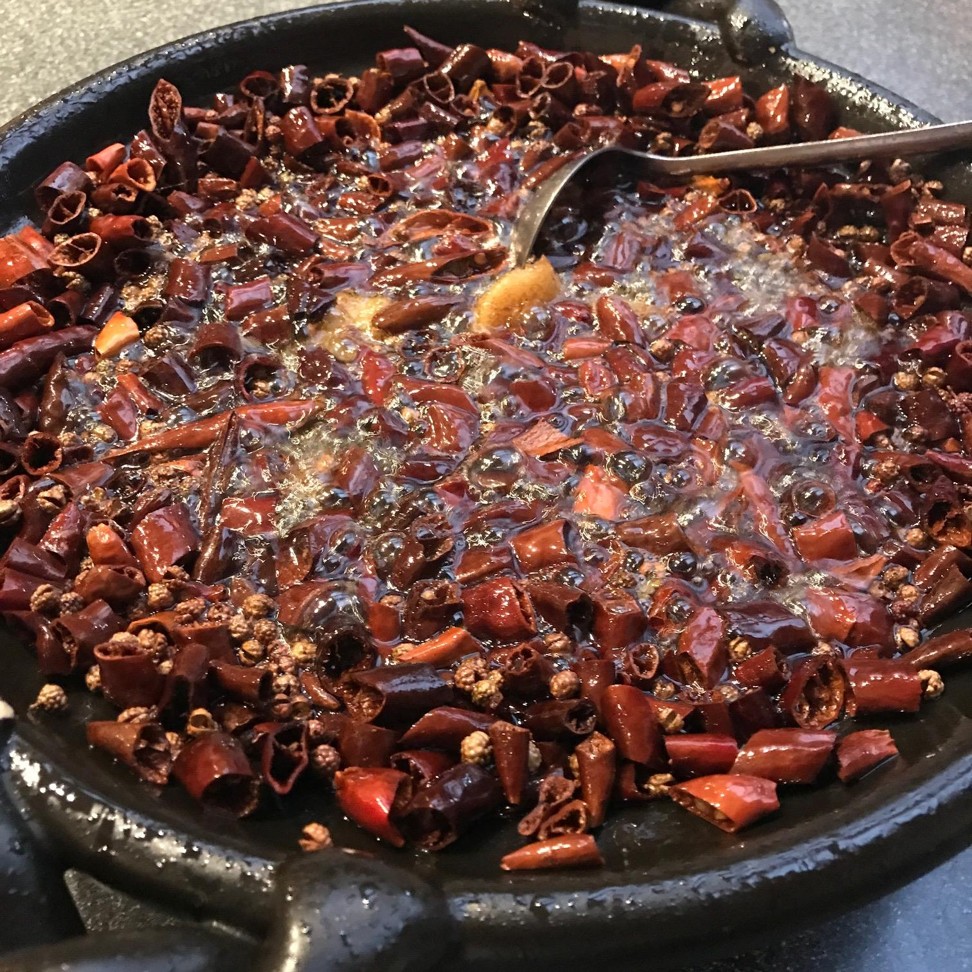
He has become a culinary ambassador for Sichuan cuisine, travelling to the US, Italy and Poland in recent years to introduce recipes from his home province to a wider audience. I meet him on a Thursday lunchtime and he talks me through his fiery, fragrant dishes.
Zhang produces a packet of tiny brown orbs and instructs me to open it. It releases a gust of perfumed air and I bury my nose deeper to catch more of the scent – dizzyingly spicy, with a tinge of sharp citrus. “You won’t find ones like these in Chinatown,” he says, solemnly.
“These” are Sichuan peppercorns, which Zhang travels to his hometown to source. This spice is an essential flavour in many Sichuan recipes and needs to be of the best quality.
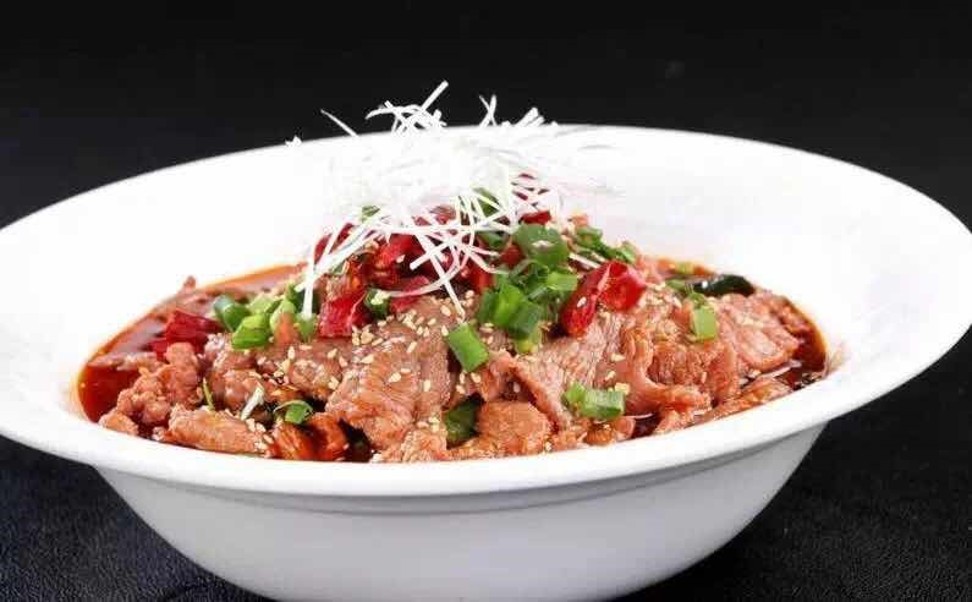
“When I came to England, I couldn’t find the same ingredients that I used in China,” Zhang explains. “In London, you can buy products from all over China and all over Asia. You can find most things you need, but they may not be the brands you are accustomed to. The Sichuan peppercorns must be these ones,” he insists.
When crushed and cooked, the peppercorns produce an extraordinary tingling and numbing effect in the mouth – adding a peppery taste with fragrant, lemony notes to dishes. They supply the distinctive flavour of Sichuan cooking and are often teamed with piles of vicious-tasting chillies.
When I came to England, I couldn’t find the same ingredients that I used in China
Lunch service has slowed as the afternoon progresses, but the restaurant still has a few customers – a group of sharp-suited European money brokers; a homesick Chinese student devouring a bowl of noodles in rich sesame sauce; an expensively attired Japanese couple.
I comment on the diversity of the customers and restaurant manager Kelven Lim explains: “There are a lot of international offices nearby and some large Chinese companies. There was real excitement when they heard a Sichuan restaurant was going to open. We attract a mix of British Chinese, some mainland Chinese students, business visitors and tourists – but I would say the mix is half Chinese, half non-Chinese”.
The Sichuan has been open for nearly three years. It replaced an Italian restaurant that had been in the same location for more than three decades. When Zhang and his business partners took over, they decided against making big changes to the restaurant’s interior.
There is a large, exposed brick wall; the chairs and tables are rustic-looking – just a few red lanterns give geographical clues to the restaurant’s cuisine.
“People like this comfortable natural style. Not many Chinese restaurants are like this – most have velvet chairs, cloths on the table. This has a European touch, it is more relaxing. Casual but elegant,” says Lim.
Four of the best new London restaurants you have to try
The restaurant may look European, but the food is authentically Chinese, and aside from a few milder dishes designed to suit palates less accustomed to chilli and spice, it is definitively Sichuan.
“We will listen to customers. We can adjust the spice levels,” says Zhang, “and we do have sweet-and-sour dishes. Not everyone at the table can tolerate heat. After all, business is business.”
Zhang is a complex mixture of authenticity and flexibility, from the decor of his restaurant to his approach to food. He explains that in the past 10 years – possibly with the advent of social media – Chinese cuisine has evolved: regions are borrowing techniques from one another and trying new ingredients, something that he thinks is good.
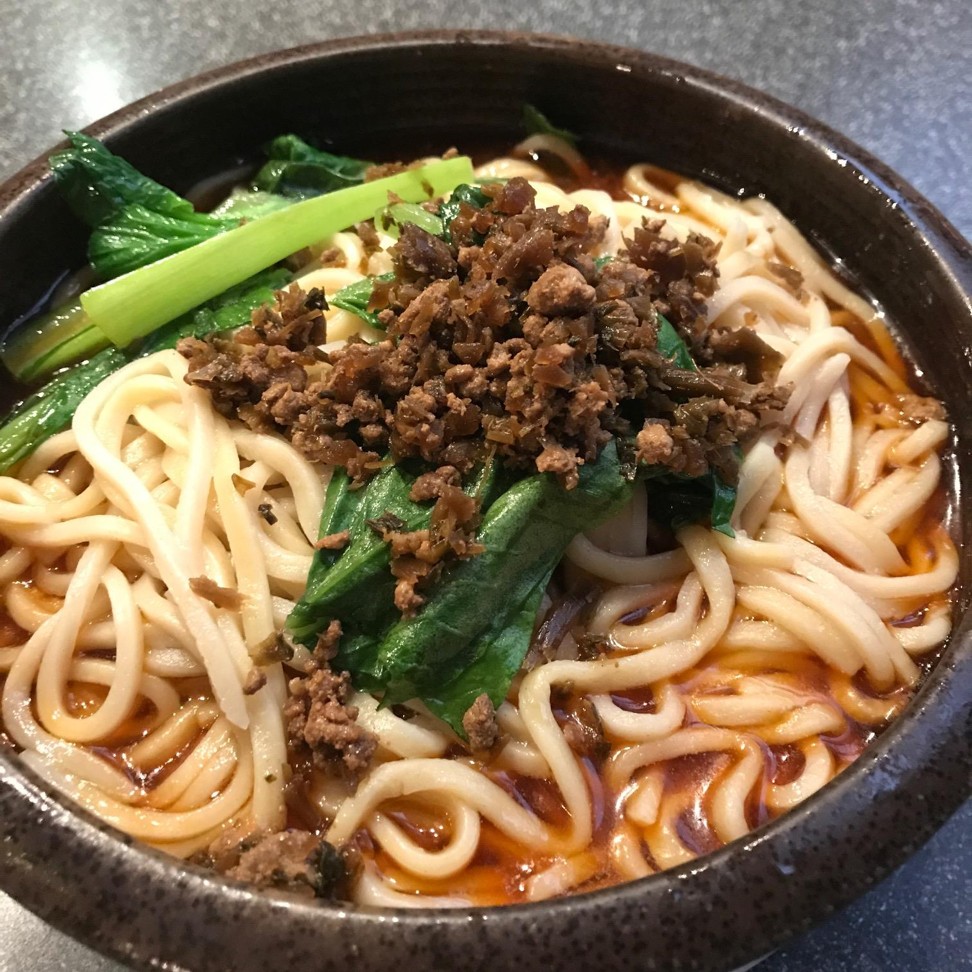
“Every cuisine has positives and negatives. I think it is wise to take the best and improve on dishes.”
He describes how he has adapted his Sichuan boiled beef dish, by applying a Cantonese technique: “Traditionally you just cut the beef, dust it with flour, salt and pepper, and cook. After working in Guangdong, I decided to use what I had learned. Now I mallet the beef to flatten it, and I add an egg to make a batter. This is how I make my boiled beef here and I have seen others using this technique in Sichuan province, too.”
When he first moved to London, Zhang found the kitchen equipment in the UK a challenge.
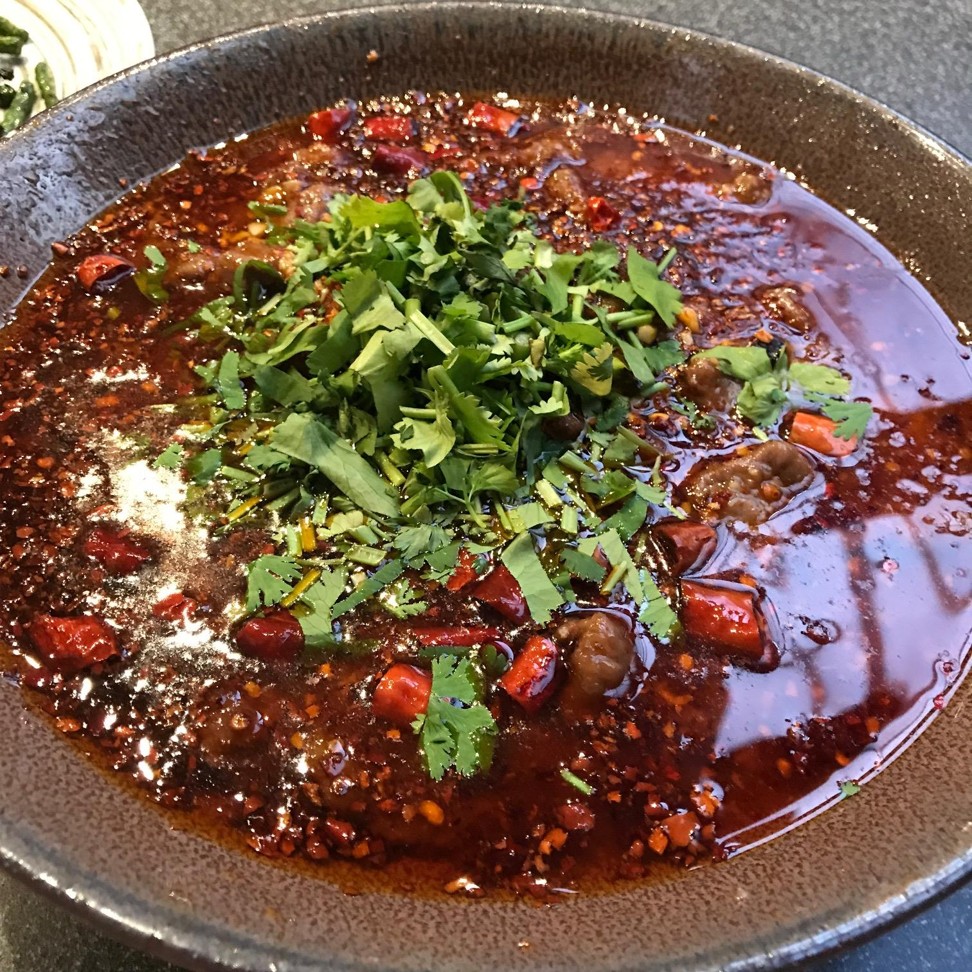
“The stoves seemed weaker than in China and the wok design in China is different to the one in the UK,” he explains, adding that the most important skill in Chinese cooking is understanding and controlling the power of the flame. “I suppose it must be to do with regulations here. But this is Europe, so you have to adapt.”
His ability to learn quickly and to deal with limitations is another strength that explains his success.
One of his signature dishes, unusually for landlocked Sichuan, has a sea fish as its star. The fish is opened, flattened and smeared with a rich garlic sauce. It is grilled to give it a crispy texture and submerged in a pungent, umami bath of garlic, shallot, shiitake mushroom, chilli and Sichuan peppercorns.
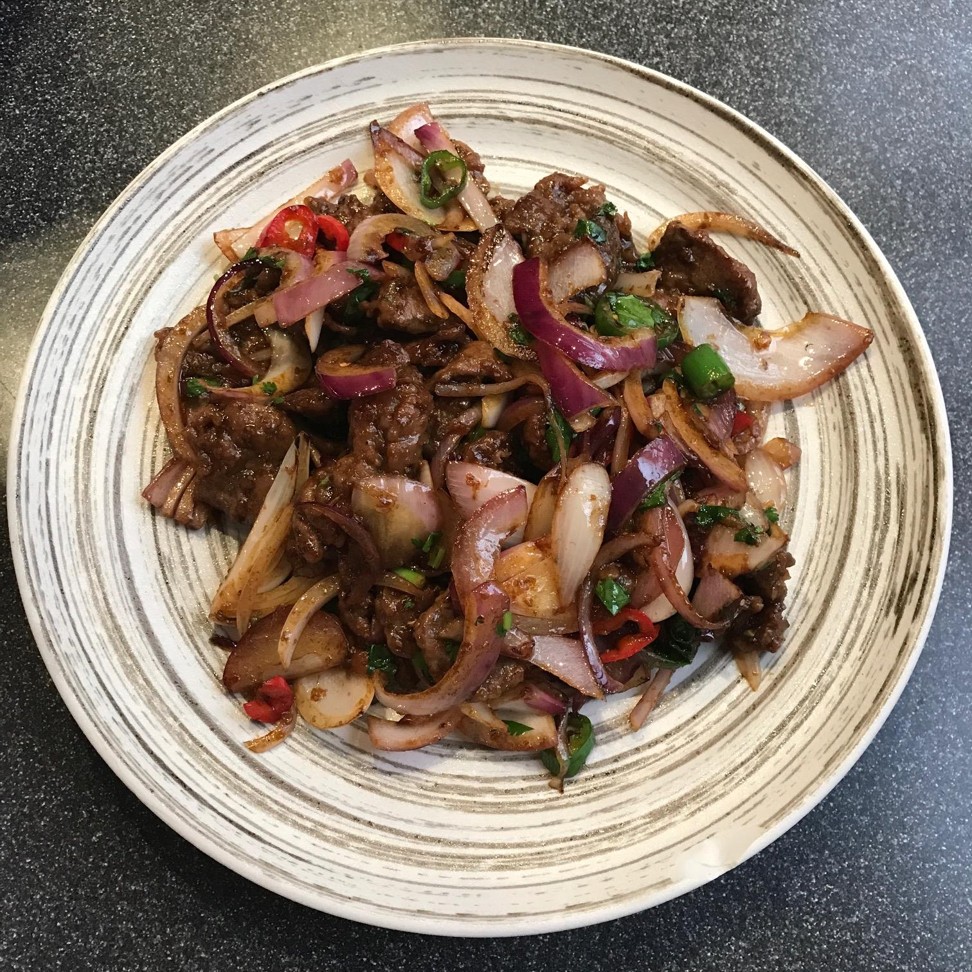
Zhang then adds slices of crisp lotus, rubbery black fungus and chewy tofu strips for more texture.
“Traditionally Sichuan cooking does not use much grilled fish. We eat more pork, duck and chicken,” says Zhang. “But in recent years whole fish has been appearing on menus. I use my special technique to create flavour and texture in this dish. It is very popular.” The dish sometimes sells out by early evening, he says.
Alongside Sichuan classics “Grandma’s Bean curd” and “Fragrant Chicken”, Zhang creates dishes featuring unusual cuts of meat and less popular ingredients.
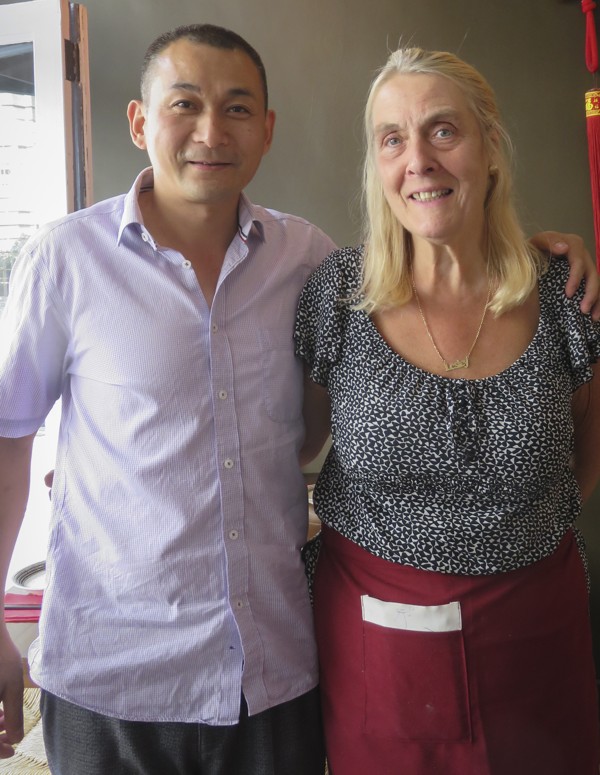
Waitress Lesley Hunt (who stayed on after spending 32 years employed by the former Italian owners) says English visitors from out of town are often surprised by the menu.
“They say, ‘It’s not like the Chinese we have where we live’, and I explain that this is authentic Sichuan. It’s not chicken balls and curry sauce. We serve frog, tripe and pigs’ ears.”
Hunt has converted many customers who used to visit the Italian restaurant to Zhang’s cooking.
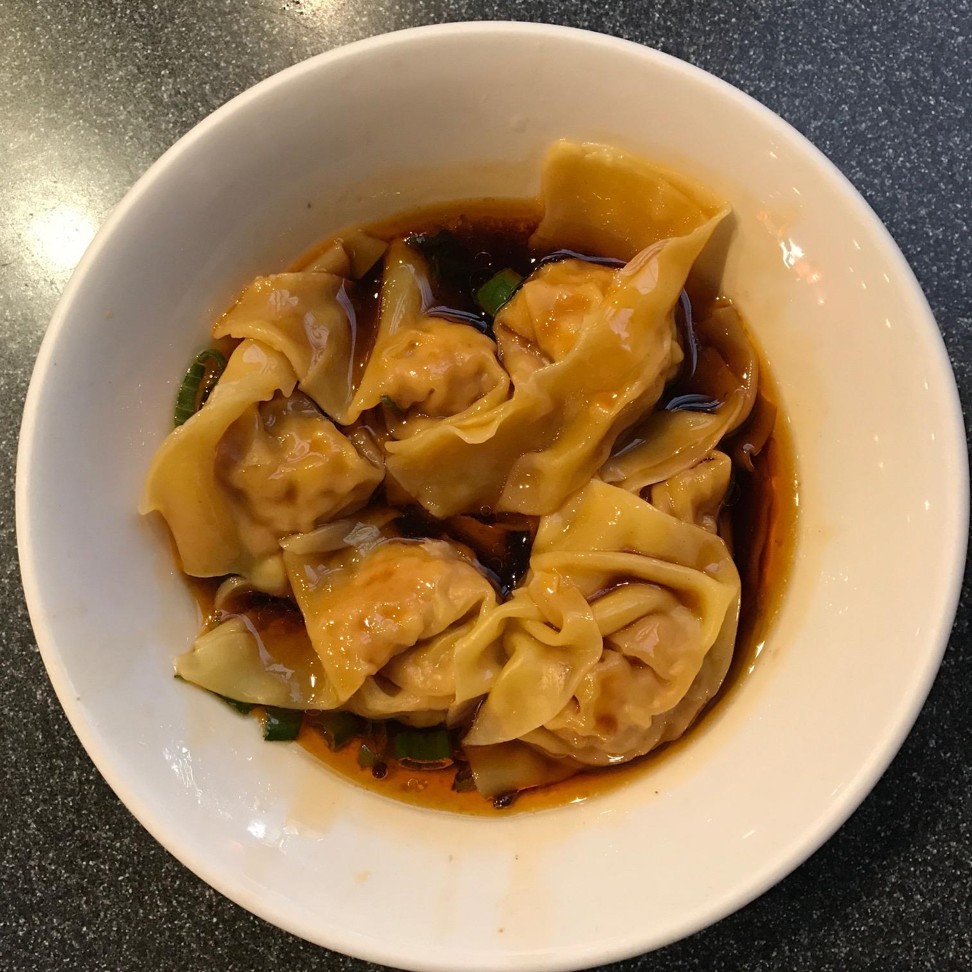
“People walk past and say, ‘Oh Lesley are you still there?’ They come and try the food and they love it.”
The service team work together to create a very natural, relaxing atmosphere. Perhaps it is the combination of a lack of starched napery, the unusual interior design, and the effusive Lim and friendly Hunt. Guests linger over meals and return frequently. Hunt seems to know all the diners by name.
The Sichuan is a departure from the grander, more formal places where Zhang has worked previously, but he appears happy to be creating a restaurant of his own where he can introduce his favourite recipes to London customers.
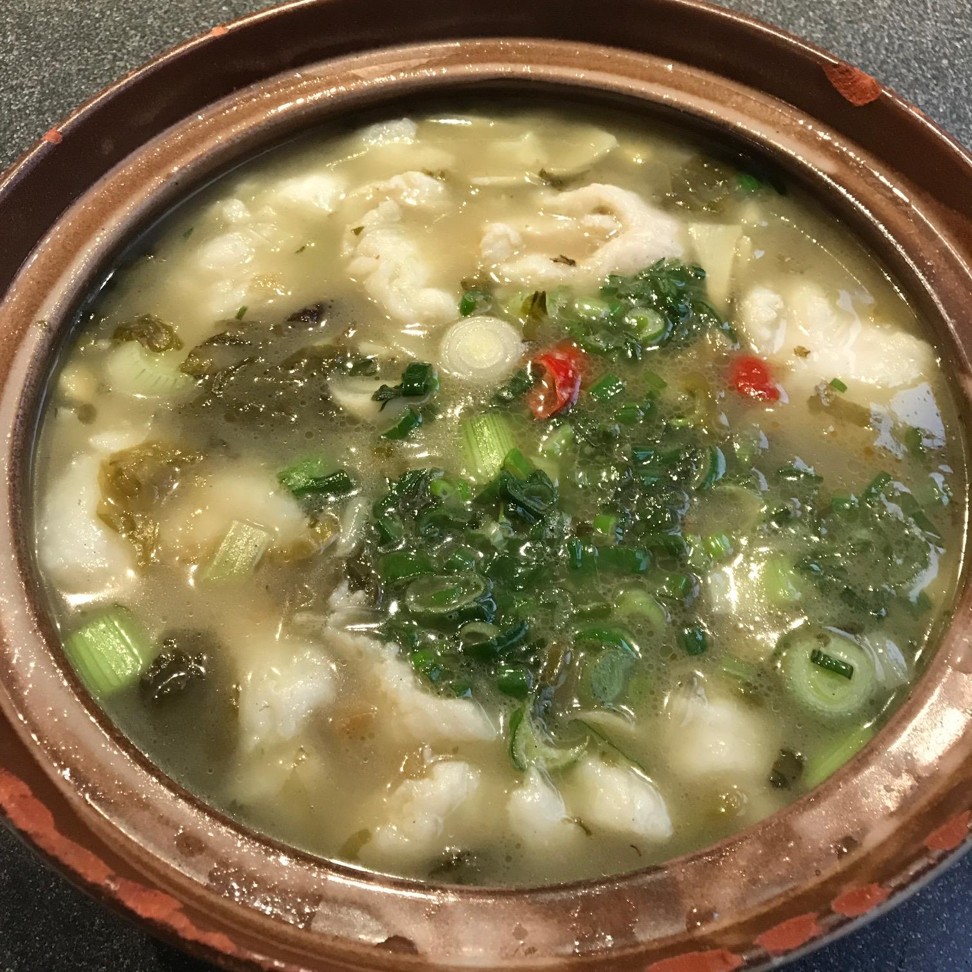
He says he hopes to open a fine-dining restaurant in the future, with a smaller menu and more refined dishes. I ask whether, like his grandfather, he has ever cooked for a Chinese leader, and he shakes his head.
“Not a president, but some very high-ranking government officials, as well as celebrities and footballers,” he says.
90pc of London restaurants contribute to disgusting fatbergs
Has he ever cooked for a British leader? He smiles, and says: “Not yet, but maybe after this story is published.”

